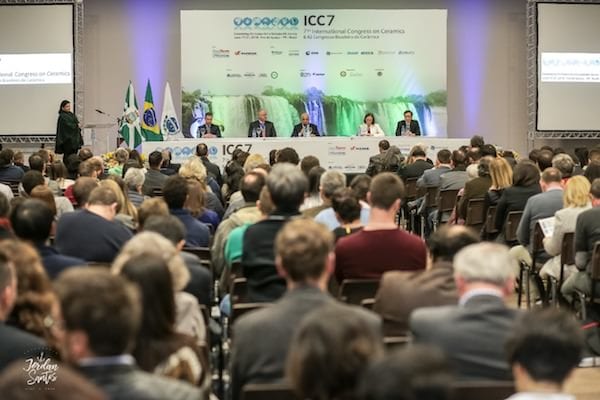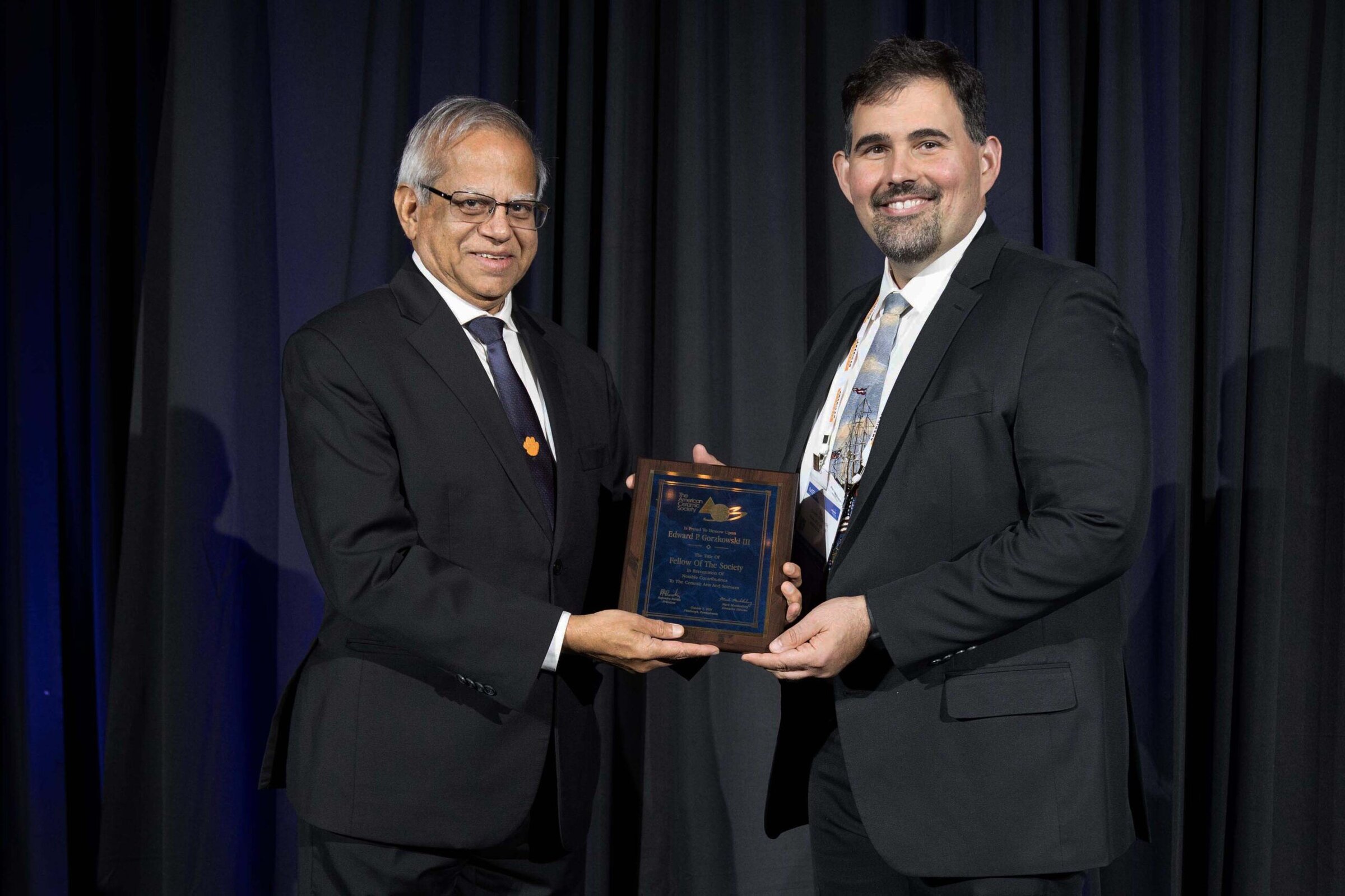
[Image above] ICC7 speakers delivered presentations on a variety of topics. Credit: Samuel Marcio Toffoli
More than 650 people from 35 countries attended the 7th International Congress on Ceramics (ICC7) and 62 Congresso Brasileirior de Ceramica in Foz do Iguacu, Brazil, June 17–21, 2018. The International Congress on Ceramics, hosted by the Brazilian Ceramic Society on behalf of the International Ceramic Federation, convenes every two years at various host locations around the world. This conference follows a sequence of successful ICC conferences held in Toronto, Canada (2006), Verona, Italy (2008), Osaka, Japan (2010), Chicago, Ill., U.S.A. (2012), Beijing, China (2014), and Dresden, Germany (2016).
Antonio Carlos de Camargo, president, Associação Brasileira de Cerâmica, and Samuel Marcio Toffoli, Polytechnic School of the University of São Paulo, served as lead organizers of the Congress. The Congress was held at the Recanto Cataratas Thermas Resort & Convention near the spectacular Iguassu Falls.

Samuel Marcio Toffoli (University of São Paulo, Brazil), Leonardo Curimbaba (president of Directive Council of ABCeram, Brazil), Daniel Zanetti de Florio (Federal University of ABC, Brazil), Katherine Faber (California Institute of Technology, USA), and Tatsuki Ohji (AIST, Japan). Credit: Samuel Toffoli
Credit: Samuel Marcio Toffoli
The conference topic, “Ceramizing the Future for a Sustainable Society” included four plenary speakers, 129 invited speakers, and many contributed and poster presentations that covered a range of topics from bioceramics, ceramics for energy and environment, ultrahigh temperature ceramics, polymer derived ceramics, porous and cellular ceramics, glass science and technology, electric and magnetic ceramics, mechanical behavior, green and energy efficient processing, additive manufacturing, and other relevant topics.

Katherine Faber addresses the 7th ICC. Faber is immediate past president of the International Ceramic Federation. Credit: Samuel Marcio Toffoli
“The four plenary speakers were outstanding choices for the conference,” ACerS Fellow Bill Fahrenholtz says. “Each were leaders in their fields. Their presentations went beyond simply reviewing technical results and represented outstanding vision for their fields.”
“Of the symposia that I was able to attend, I thought that the program in Bioinspired Ceramics and Composites symposium was very well-conceived,” he adds. “Many of the presentations were thought-provoking and really analyzed research needs or emerging trends in the field, which was the original intent of the ICC meetings.”
Future ICC conferences will take place in Busan, South Korea in 2020; Krakow, Poland in 2022; and Montreal, Canada in 2024.
Did you find this article interesting? Subscribe to the Ceramic Tech Today newsletter to continue to read more articles about the latest news in the ceramic and glass industry! Visit this link to get started.
Spotlight Categories
- Meeting Highlights


